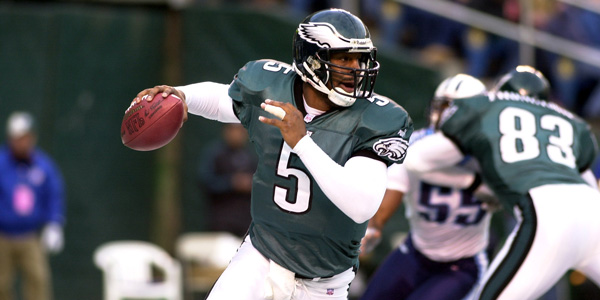
What Leads to a Comeback in Football?
And what causes a meltdown? Comebacks and meltdowns are on opposite sides of the spectrum but the basis of both is quite similar.
Comebacks and meltdowns are affected by mindset, more particularly whether you are focused in the past, present or future.
Whether or not you have a successful comeback depends upon your mental game. If you are focused on past mistakes during a competition, your confidence will be wounded and the tendency will be to give up to some degree.
Focusing on the potential loss or potential disaster result, a future focus, will also take away from your performance because your “head” is no longer in the game.
The only way to mount an effective comeback is to be fully immersed in what you need to do in the moment. The present moment is the only point in time you can exert control and directly impact your performance.
A successful comeback does not necessarily mean a win, it can be bouncing back in a competition, regaining your composure and performing at a high level.
Likewise, melting down or closing out a game after having a lead comes down to focus. A performance meltdown occurs when you think you have the game in the bag or when you believe you have already won before the final whistle has blown.
That type of focus is based in the future. The only way to successfully close out a competition is to focus in the moment or keep making the necessary plays right in front of you.
Your focus is the main factor that affects your performance and the eventual result of a competition.
The following 2019 collegiate football example really hits home the impact of the mental game…
Winless UCLA faced No. 19 Washington State Cougars. At one point, UCLA was trailing by 32 points in the second half but bounced back scoring 50 points with 18:48 left in the game to pull off the upset victory, 67-63.
How was it possible to make one of the best comebacks in collegiate football history?
The Comeback Mindset!
UCLA was focused on making plays… not on their mistakes earlier in the game, not on a potential devastating loss and not on continuing their winless streak.
UCLA sophomore wide receiver Chase Cota commented on how offensive staff assistant Jerry Neuheisel helped keep the team focused on making plays in the moment.
COTA: “[Neuheisel] was getting us excited when we were down, saying this is what we are going to do, we are going to drive, they [our defense] are going to get a stop, he tells us how the game is going to go out, so we were just confident in that and we were just having fun.”
UCLA was focused on what they were going to do (the present) and not what has happened (the past) or what might happen (the future).
Ultimately, how you perform will be highly affected by your mindset:
Are you going to focus on what you want to do or are you going to focus on what you fear might happen?
The Mindset of Making a Comeback:
No matter the situation, ask yourself, “What can I do right now to be my best in this moment?”
A comeback starts when you have the mindset to grind out the game until the game is over. Giving in to defeat doesn’t make you a better athlete.
Even if there are only five seconds left in a game and you are trailing by 40 points, being your best in the moment builds a habit of resiliency.
Related Sports Psychology Articles
*Subscribe to The Sports Psychology Podcast on iTunes
*Subscribe to The Sports Psychology Podcast on Spotify
Download a free sports psychology report to improve your mental game!
Learn more about our one-on-one mental game coaching.
Mental Coaching for Football
If you are not getting the most out of your performance at game time, it’s time to look at your mental game instead of do more reps in the gym. You can engage in a mental coaching program via Zoom, Skype, phone, FaceTime, or GoTo Meeting from the comfort of your home or hotel. Today’s video technology allows us to connect with athletes and coaches all over the globe.
One-on-one mental coaching is the fastest and most effective method to improve your mental game, boost your performance, and make lasting changes. We have a variety of mental coaching programs to choose from. Please contact us today to learn how mental coaching works and to request pricing on all mental training programs. Contact us a Peak Performance Sports.

Please call us at 888-742-7225 with your questions.